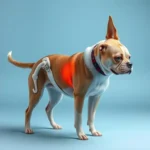
Introduction
Overview of Dog Health Care
Maintaining the health and well-being of our beloved pets is paramount for dog owners. Regular health check-ups not only help in early detection of potential issues but also keep our furry friends happy and active. Dogs, like humans, are susceptible to a variety of health problems that can affect their quality of life. From dental diseases to allergies, understanding common health issues in dogs is essential for providing proper care.
Specific Focus on Dobermans
The Doberman Pinscher is a unique breed known for its intelligence, loyalty, and striking appearance. These dogs are often chosen for their protective instincts and energetic nature. However, like many breeds, Dobermans can face specific health concerns. Issues such as hip dysplasia, dilated cardiomyopathy, and skin problems are commonly observed.
Purpose of the Article
This article aims to explore the question: why does my Doberman shake so much? By delving into the reasons for shaking, we will provide actionable insights for dog owners to better understand and address this behavior.
Understanding Shaking in Dogs
What Does Shaking Mean?
Shaking in dogs can have a variety of meanings. It can range from a simple tremor in response to cold temperatures to more concerning conditions that require medical attention. Distinguishing between normal and abnormal shaking is vital for pet owners.
Common Reasons for Shaking in Dogs
- Cold or Discomfort: Just like humans, dogs may shiver when they are chilly or uncomfortable.
- Excitement or Anxiety: Shaking can also stem from high excitement levels or anxiety, particularly in breeds like Dobermans that are sensitive to their environments.
- Pain or Injury: Dogs may shake as a response to pain or injury, whether it’s a minor scrape or a more significant condition.
- Medical Conditions: Various medical issues, ranging from neurological disorders to metabolic problems, can cause shaking in dogs.
Specific Causes of Shaking in Dobermans
Genetic and Breed-Specific Factors
Dobermans are known for their strong, muscular bodies and unique temperament. However, some Dobermans may be genetically predisposed to conditions that can cause shaking. Understanding these breed-specific factors is essential for owners.
Common Medical Conditions in Dobermans
- Hypothyroidism: A common condition in older Dobermans, hypothyroidism can lead to symptoms such as weight gain, lethargy, and shaking.
- Neurological Disorders: Dobermans may be susceptible to certain neurological issues that can manifest as tremors or shaking.
- Muscle or Joint Issues: Conditions such as arthritis or muscle injuries may lead to shaking, especially after physical activity.
Behavioral Factors
Anxiety and stress are significant contributors to shaking in Dobermans. Situational triggers, such as loud noises (fireworks, thunder) or changes in their environment (moving to a new home), can result in noticeable shaking during stressful moments.
When to Be Concerned
Signs That Shaking May Indicate a Health Issue
Not all shaking is cause for alarm, but certain signs should prompt further investigation. These include:
- Duration and Frequency: If the shaking is prolonged or occurs frequently, it could indicate an underlying issue.
- Accompanying Symptoms: Look for additional symptoms such as vomiting, lethargy, or loss of appetite, which may suggest a more significant health problem.
Situations That Require Immediate Veterinary Attention
Certain situations call for immediate consultation with a veterinarian. If you notice:
- Severe shaking or trembling: This could indicate serious distress or medical issues.
- Signs of pain or distress: Vocalizations or avoidance behavior may also be signs of pain.
- Changes in behavior or physical condition: Sudden changes should never be ignored.
Health Care Tips for Dobermans
Regular Veterinary Check-ups
Routine veterinary exams are crucial for early detection of health issues. Regular check-ups can help identify problems before they escalate, allowing for timely intervention.
Monitoring Behavior and Physical Health
Keeping a health diary can be beneficial for tracking incidents of shaking. Note the frequency, duration, and any associated behaviors or events. This information can be invaluable for your veterinarian.
Stress Management Techniques
Managing anxiety in Dobermans can significantly reduce shaking incidents. Consider implementing:
- Training to Reduce Anxiety: Techniques such as desensitization can help dogs cope with stressors.
- Calming Products: Anxiety wraps, pheromone diffusers, or calming treats can also aid in alleviating anxiety.
Home Remedies and Lifestyle Adjustments
Creating a Comfortable Environment
Ensuring your Doberman is comfortable can help reduce shaking. Control the temperature of your living space and provide cozy areas where your dog can relax.
Using Natural Supplements
Certain natural supplements may help with anxiety and promote joint health. Consult with your veterinarian to explore options that are safe and effective for your Doberman.
Exercise and Mental Stimulation
Engaging in regular physical activity is essential for Dobermans. Exercise not only helps maintain physical health but also supports mental well-being. Activities such as:
- Regular walks: Aim for at least 30-60 minutes of exercise daily.
- Interactive toys: These can provide mental stimulation and help reduce anxiety.
Professional Interventions
When to Consult a Veterinarian
If you observe persistent shaking, or if your Doberman exhibits other concerning signs, it is crucial to seek professional help. Your veterinarian can conduct a thorough examination and recommend appropriate treatment options.
Treatment Options Available
Depending on the underlying cause of shaking, treatment options may include:
- Medications for Anxiety or Pain Management: Anti-anxiety medications or pain relief can significantly improve quality of life for affected Dobermans.
- Physical Therapy for Mobility Issues: Therapy can help strengthen muscles and improve movement in dogs with joint problems.
Behavioral Therapies
Working with a dog behaviorist can also be beneficial. They can provide strategies for coping with anxiety and help modify behaviors that contribute to shaking.
Conclusion
Summary of Key Points
Understanding why your Doberman shakes is essential for their overall health and well-being. From environmental factors to underlying medical conditions, many reasons may cause this behavior. Monitoring your dog’s health and behavior can lead to timely interventions and better outcomes.
Encouragement for Dog Owners
As a Doberman owner, empowering yourself with knowledge about your dog’s health care is critical. By being proactive and observant, you can foster a strong bond with your pet and ensure they lead a healthy, happy life. Your commitment to understanding and addressing their needs will surely enhance your relationship with your Doberman.
This article provides a comprehensive overview of the various reasons why your Doberman may shake. By taking the time to understand your dog’s behavior and health, you can ensure they receive the best care possible.









